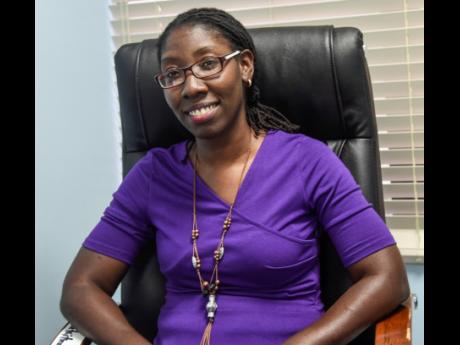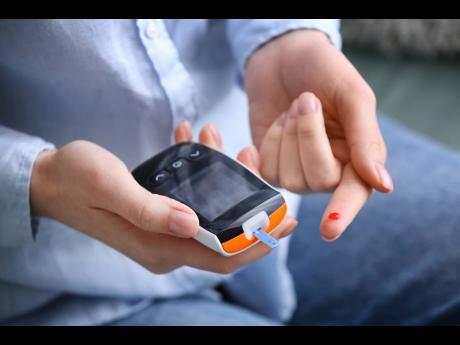Diabetes awareness – Get tested today
In Jamaica, diabetes is often referred to as ‘sugar’ and is a potentially life-threatening illness that is the second leading cause of death for those under the age of 70 years. The Jamaica Health and Lifestyle Survey III (2016-2017), indicates that one in every eight persons 15 years and older has diabetes. Four out of 10 persons in Jamaica who have diabetes are not aware of their status.
Diabetes is a chronic condition in which blood sugar levels are high. The hormone insulin (made in the pancreas) is essential for storing glucose (sugar) from digested food. In persons with diabetes, the body stops producing insulin, or cannot use it properly, causing high blood glucose levels (hyperglycaemia).
According to Dr Julia Rowe-Porter, medical epidemiologist, Non-Communicable Disease and Injury Prevention Unit, Ministry of Health and Wellness, with the disease, long before symptoms appear or tests reveal abnormally high blood glucose levels, changes are taking place that eventually lead to full-blown diabetes.
“There are three main types of diabetes:
Type 1 Diabetes – also known as juvenile diabetes, in which people are insulin-dependent. This means that they must take insulin injections daily to stay alive.
Type 2 Diabetes – When the body is unable to make enough insulin or cannot properly use the insulin it makes; and
Gestational Diabetes – which affects some women during pregnancy due to the body not being able to use insulin properly,” Dr Rowe-Porter said.
A blood glucose test measures the amount of sugar (glucose) in the blood. You can do a blood glucose test to check if you have diabetes or pre-diabetes. Ask your healthcare provider about getting tested.
Signs and symptoms of diabetes include increased hunger and thirst, frequent urination, vaginal infections, slow-healing wounds, blurred vision, extreme tiredness, nausea and vomiting, weight loss, weight gain, and impotence.
“Diabetes can affect every organ in the body. If it is not controlled, you may develop complications or problems such as stroke, heart disease, foot disease (ulcers or sores that may lead to amputation if not properly treated), nerve damage – this can cause numbness, tingling or pain in the toes and fingers, kidney disease (kidney failure), eye disease – reduced vision and blindness, skin conditions, gum disease and loss of teeth, and sexual problems like impotence in men,” Dr Rowe-Porter said.
If you have diabetes, go to your doctor for regular checkups, eat healthy foods with more fibre, more fruits and vegetables and less processed food. Be physically active, maintain a healthy weight, check your feet daily for cuts, sores, bruises, rashes, swelling, or signs of infection.
If you smoke, quit and maintain a normal blood pressure and blood cholesterol level. If you drink, ask your doctor how much is right for you.
“Persons with diabetes need to learn how to do their tests and what the measurements mean. This knowledge can literally mean the difference between life and death. Blood glucose levels need to be maintained within a certain range to help you remain healthy. For most persons with diabetes, normal glucose levels while you are fasting fall between 3.9 and 7.2 mmol/l. That is the same as 70 and 130 mg/dl. Glucose levels should also be less than 10.0 mmol/l (or 180 mg/ dl) two hours after you have eaten,” Dr Rowe-Porter said.
Blood sugar levels measuring above these values are indicative of high blood sugar or hyperglycaemia, and if these levels remain high, you are likely to develop complications.
Watch for low blood sugar levels or hypoglycaemia (about 3.2 mmol/l or 60 mg/dl), and pay attention to the early warning signs (such as dizziness/drowsiness, confusion, nervousness, shaking, sweating, or hunger). Treat low blood sugar promptly by quickly eating or drinking a simple sugar source such as glucose tablets/sweets or fruit juice.
“Doing your HbA1c blood tests is a great way for your doctor to know if your diabetes is well controlled. Also talk to your doctors about doing regular checks on your eyes, feet, kidneys, heart, blood pressure, and blood cholesterol to ensure you are on track to preventing or slowing the development of complications from diabetes,” Dr Rowe-Porter said.




